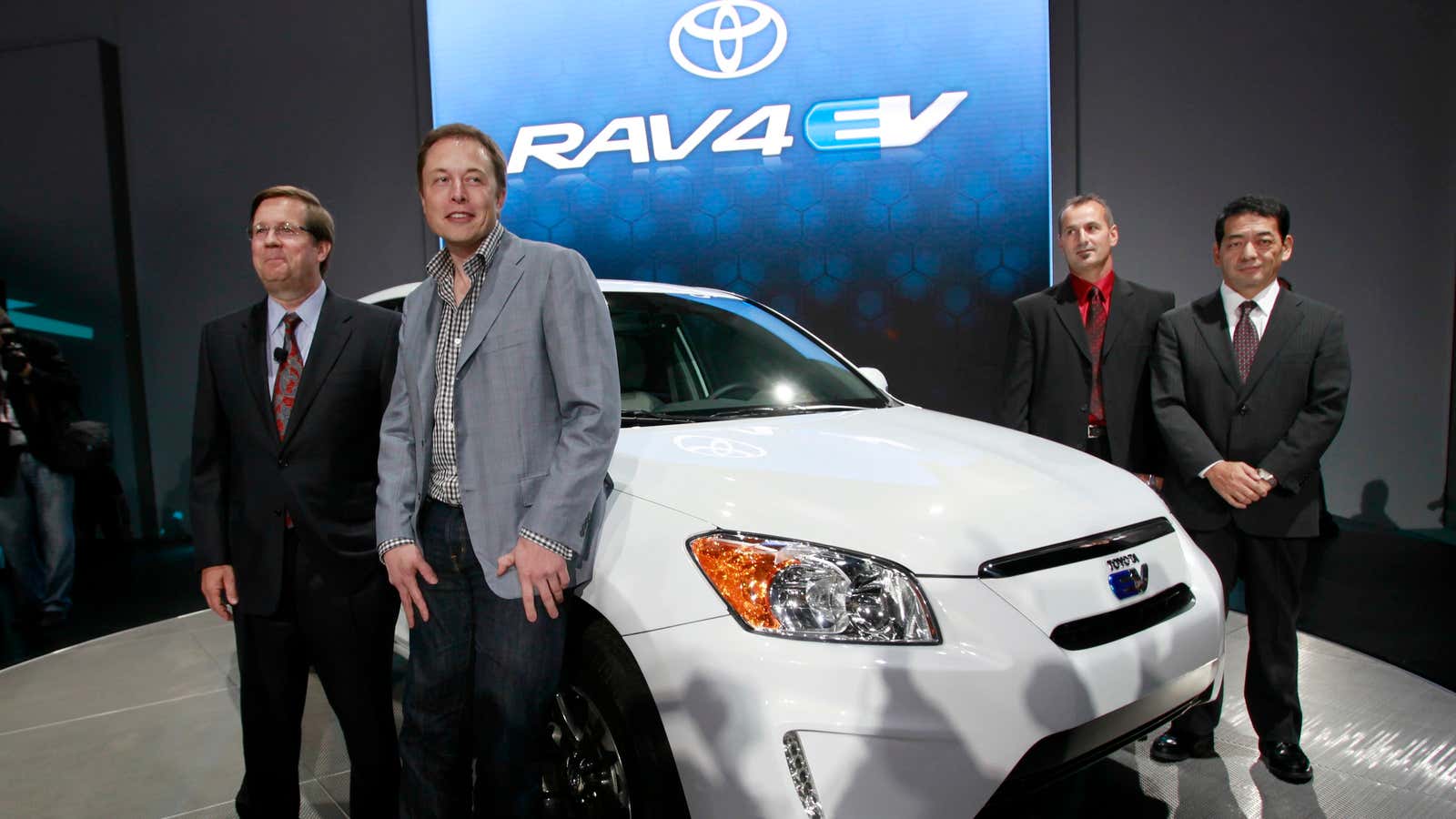What’s Elon Musk up to now? Last week the chief executive of electric carmaker Tesla Motors cryptically tweeted this:
Musk, who drives his media handlers to distraction with his tendency to tweet first and ask questions later, pushed back the date of the big reveal to tomorrow (April 2), setting off rampant social media speculation: Would he speed up the production of Tesla’s next car, the Model X? Or maybe announce an early payback of the company’s $465 million US federal loan guarantee?
Tesla stated yesterday that it would become profitable in the first quarter of this year, due in part to exceeding production targets for the Model S, its luxury sports sedan. That sent Tesla’s shares up 18% this morning, but no, that wasn’t what Musk was tweeting about:
Wherever Musk puts his money tomorrow, Tesla is worth watching. At $5 billion, its market cap is sizable alongside $38 billion for General Motors and $37 billion for Honda, considering that those giants sell thousands of times more cars. And it says it’s about to become profitable when erstwhile competitors like Fisker Automotive head toward bankruptcy and the large car firms struggle to gain traction with their battery-powered vehicles.
While Tesla is known for cars like the Model S, its side business of supplying advanced electric power trains and lithium-ion battery packs to big automakers could ultimately matter more. While the Nissan Leaf, Ford Focus Electric and other battery-powered cars currently on the market offer a range of about 75 miles, or 120 kilometers, Tesla’s drive trains (the motors, gears, and electronic systems that transfer power from the battery to the wheels) allow drivers to go as far as 265 miles before juicing up, though they cost more.
Last September, I visited Tesla’s Palo Alto, California, headquarters in a defunct Hewlett-Packard research lab in the hills above Stanford University. As JB Straubel, the co-founder and chief technical officer, showed me around the sprawling facility, we wandered into a huge R&D space where Tesla Roadsters and Model S’s were parked next to Mercedes B-Class luxury compacts and Toyota RAV4 sport utility vehicles being outfitted with Tesla electric drive trains.
Tesla supplied 2,700 drive trains for the Mercedes A-Class subcompact and Smart Fortwo in Europe and has a deal to build electric power trains for the B-Class model that launches in the US in 2014 (though it said in a filing last month that the terms of the deal had not been finalized.)
The company is also supplying electric drive trains for the RAV4 EV, a deal that Tesla estimates could bring in as much as $100 million when the agreement ends at the end of 2014. Tesla said in regulatory filings that it has been in talks with other automakers about supplying them.
Last month, I drove the RAV4 EV in San Francisco and it’s easy to see why Toyota is collaborating with Tesla. The compact sport utility is fast and will go up to 125 miles on a charge. But Toyota is only selling the car in California and plans to make just 2,600 of them through the end of 2014. That’s partly because Tesla has limited capacity and partly because Toyota is still testing out demand, says Jana Hartline, a Toyota spokesperson, though the two companies could extend the deal.
Regardless of what Tesla announces tomorrow, another date to watch is July. That’s the expiration date for an exclusive agreement with Daimler that bars Tesla from supplying technology to the German company’s strategic competitors without giving it the right of first refusal. Hello, Audi.




